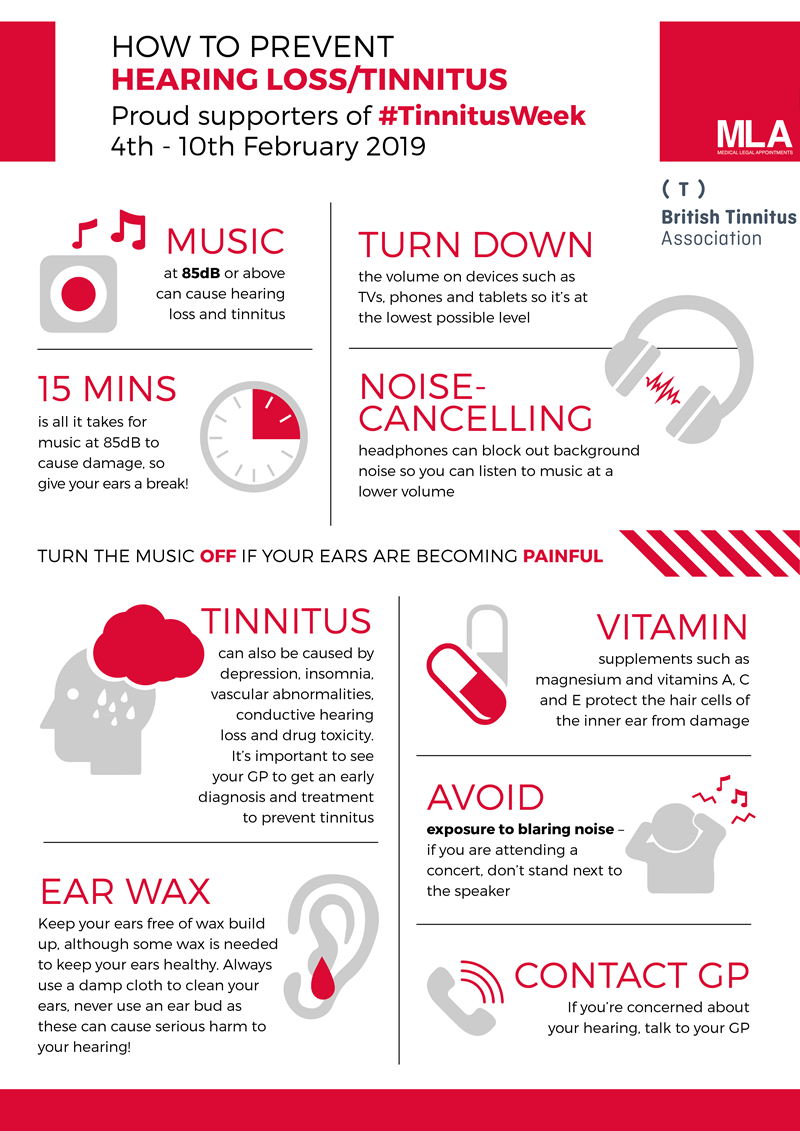To avoid tinnitus as a musician, wear ear plugs during live performances and rehearsals. Additionally, take breaks and limit sound exposure to prevent hearing damage.
Music is an integral part of our lives that we all enjoy listening to. However, excessive exposure to loud music can lead to a ringing sensation in the ears, commonly known as tinnitus. Tinnitus is a common problem for musicians who are regularly exposed to high sound levels during live performances and rehearsals.
It can have a significant impact on one’s hearing ability. Therefore, it is essential to take measures to avoid the risk of tinnitus. We will discuss some practical tips that you can follow to protect your ears and prevent tinnitus as a musician.

Credit: pirate.com
Know Your Limits
As a musician, it’s important to know your limits and protect your hearing to avoid tinnitus – a persistent ringing or buzzing in the ears. Take regular breaks, wear ear protection, and keep volume levels at a safe level to prevent damage to your hearing.
Playing an instrument or singing can be a fun and rewarding hobby or career choice. However, it can also come with risks, such as developing tinnitus. Tinnitus is a condition where one experiences a constant ringing in their ears, which can cause discomfort, hearing loss, and even depression. As a musician, it is essential to know your limits and take the necessary actions to prevent tinnitus.
Volume Control
One of the easiest ways to prevent tinnitus as a musician is to pay close attention to the volume. Playing music at high volumes for extended periods can cause damage to your ears, leading to tinnitus. It is best to use earplugs or noise-canceling headphones to protect your hearing. Additionally, try using noise meters to monitor sound levels during practice or performances. Staying within safe recommended levels can reduce the risk of developing tinnitus.
Take Breaks
As a musician, practicing for hours on end may seem like the best way to improve your skills. However, doing so can lead to ear fatigue, leading to tinnitus. It is essential to take breaks every hour or so to give your ears a chance to rest. During these breaks, try to keep it quiet and calm to give your ears time to recover. Over time, taking regular breaks can prevent tinnitus from developing.
Protect Yourself
Along with using earplugs and noise-canceling headphones, there are other ways to protect your ears. Try using in-ear monitors, which can provide better sound quality while also reducing the risk of hearing damage. Additionally, consider limiting your exposure to loud noise outside of practice and performances. For instance, avoid going to loud concerts or clubs or using noisy equipment. Conclusion In conclusion, tinnitus is a common condition among musicians that can have detrimental effects on your hearing and your career. As a musician, it is crucial to take the necessary steps to prevent tinnitus from developing. Knowing your limits, controlling the volume, taking breaks, and protecting yourself are all essential in preventing tinnitus. By following these steps, you can ensure that you continue to enjoy playing music for many years to come.

Credit: www.mla-ltd.co.uk
Protect Your Ears
As a musician, it’s important to protect your ears from tinnitus. Here are a few tips: 1) wear earplugs, 2) take breaks, 3) keep volume levels in check, 4) reduce exposure to loud noise outside of music performance.
As a musician, your ears are your most valuable asset. However, constant exposure to loud music during rehearsals, gigs, and performances can damage your hearing, leading to a condition known as tinnitus. Tinnitus is a ringing or buzzing in the ears that can be persistent and highly frustrating. Fortunately, there are specific measures you can take to protect your ears and avoid tinnitus altogether. Here are some tips.
Earplugs
One of the simplest and most effective ways to protect your ears as a musician is by wearing earplugs. Earplugs are small inserts that fit into the ear canal and reduce the amount of sound that gets in. Musicians’ earplugs are designed specifically for musicians and contain filters that attenuate sound evenly across frequencies without distorting it. This allows you to hear the music clearly while protecting your ears from excessive noise. Invest in a good pair of earplugs and wear them during rehearsals, gigs, and performances to avoid tinnitus.
Noise-cancelling Headphones/monitors
Another way to protect your ears as a musician is by using noise-cancelling headphones or monitors. These devices use active noise-cancellation technology to block out external sounds, allowing you to hear the music clearly at a lower volume. By reducing the amount of noise that gets into your ears, you can protect your hearing and avoid tinnitus. Noise-cancelling headphones or monitors are particularly useful during long rehearsals or recording sessions.
Conclusion
Protecting your ears as a musician should be your top priority. Wear earplugs, use noise-cancelling headphones or monitors, and take regular breaks to allow your ears to rest. Remember, once your hearing is damaged, there is no going back. Take care of your ears, and they will take care of you for years to come.
Maintain Good Health
To maintain good health as a musician and avoid developing tinnitus, it’s important to protect your ears from loud noises and take frequent breaks during practice and performances. Use earplugs or noise-cancelling headphones and consider investing in high-quality gear that will reduce the risk of hearing damage.
As a musician, your hearing is your greatest asset, but constant exposure to loud music can have negative consequences, such as tinnitus. While it’s impossible to avoid loud music altogether, it’s essential to take some steps to protect your hearing and prevent tinnitus. One of the best ways to do this is to maintain good health. Here are some ways to do that:
Stress Management
Stress is a significant contributor to tinnitus, so it’s essential to take steps to manage stress. This can include regular exercise, meditation, or mindfulness practices. Identify the causes of stress in your life and try to eliminate or minimize them where possible. Engage in a hobby or activity that you find relaxing or engaging, such as reading, painting, or hiking.
Dietary Changes
Your diet can also have a significant impact on your health, including your hearing. Foods rich in antioxidants, vitamins A, C, and E, and omega-3 fatty acids can help prevent damage to the delicate hair cells in your inner ear. Conversely, foods high in salt, sugar, and caffeine can contribute to tinnitus. Avoid or limit your intake of these foods and focus on eating a balanced, nutritious diet.
Regular Exercise
Regular exercise is vital for good health and can also help prevent tinnitus. Exercise improves blood flow to the ears, which can help nourish and protect the hair cells in your inner ear. Exercise can also help reduce stress and improve your overall mood and outlook. Aim for at least 30 minutes of moderate exercise every day, such as walking, jogging, or cycling. In conclusion, maintaining good health is critical to preventing tinnitus as a musician. By managing stress, making dietary changes, and engaging in regular exercise, you can protect your hearing and enjoy your music for years to come.

Credit: siouxfallshearing.com
Implementing Healthy Habits Into Your Routine
As a musician, protecting your hearing is important to prevent damage or permanent hearing loss. Tinnitus is a common issue among musicians, but it can be prevented by implementing healthy habits into your routine. Below are some ways to create a self-care plan and track progress to avoid tinnitus as a musician.
Creating A Self-care Plan
Creating a self-care plan ensures that you prioritize your health and well-being. Below are a few self-care habits for musicians:
| Healthy Habits | Description |
| Eating a Balanced Diet | Eating a balanced diet that includes fruits, vegetables, and lean protein is important in maintaining your overall health and preventing hearing loss. |
| Wearing Ear Protection | Wearing earplugs or noise-cancelling headphones can protect your ears from loud sounds and prevent tinnitus. |
| Maintaining Safe Noise Levels | Maintaining safe noise levels, especially during practice sessions and performances, can prevent hearing loss and tinnitus. |
| Taking Breaks | Taking breaks during practice sessions and performances can prevent overexposure to loud music and reduce the risk of tinnitus. |
Tracking Progress
Tracking progress is important in implementing healthy habits effectively. Some ways to track progress are:
- Keeping a Journal – keeping a log of when and where you wear ear protection and how long you take breaks can help track progress.
- Using Smartphone Apps – there are various apps to track your safe noise exposure and remind you to take breaks.
- Regular Hearing Tests – regular hearing tests can help track any changes in your hearing and catch any issues early.
Implementing these healthy habits may seem difficult at first, but they can greatly reduce the risk of tinnitus and hearing loss in the long run. Prioritizing your hearing health as a musician can help you enjoy and continue your music career for years to come.
Frequently Asked Questions Of How To Avoid Tinnitus As A Musician
How Do Musicians Not Get Tinnitus?
Musicians can protect their hearing by using earplugs or in-ear monitors. They can also limit exposure to loud sounds, take regular breaks, and avoid standing too close to speakers. Tinnitus can be prevented by taking care of your ears and seeking treatment if you experience any symptoms.
What Causes Tinnitus For Musicians?
Musicians are at risk of developing tinnitus due to prolonged exposure to loud sounds during live performances or rehearsals. The loud noise damages the hair cells in the inner ear and generates a constant or intermittent ringing or buzzing sound in the ear.
Proper hearing protection and monitoring sound levels can help prevent tinnitus in musicians.
How Do Professional Musicians Protect Their Ears?
Professional musicians protect their ears by wearing high-quality earplugs or in-ear monitors that filter out damaging sound frequencies without compromising sound quality. They also limit their exposure to loud sounds, take regular breaks, and monitor their sound levels with decibel meters.
Additionally, they take steps to maintain their overall health and wellness, which can contribute to healthier hearing.
Is There A Cure For Musical Tinnitus?
There is no known cure for musical tinnitus. However, various treatment options can help reduce symptoms, such as cognitive behavioral therapy, sound therapy, and medication. It is important to consult a healthcare professional for proper diagnosis and management of the condition.
Conclusion
As a musician, tinnitus can be a real threat to your ability to play and enjoy music. Fortunately, there are several steps you can take to prevent it. From wearing earplugs to taking breaks during practice sessions, by following these tips consistently, you can keep your ears healthy and minimize your risk of developing tinnitus.
Remember, taking care of your hearing should always be a top priority, and with a little bit of effort, you can keep your ears in great shape for years to come.